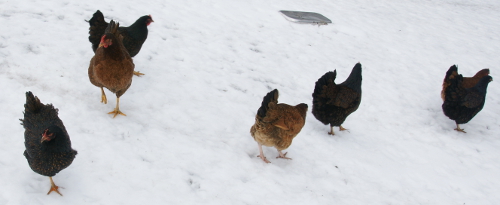How to insulate a chicken coop in the UK.
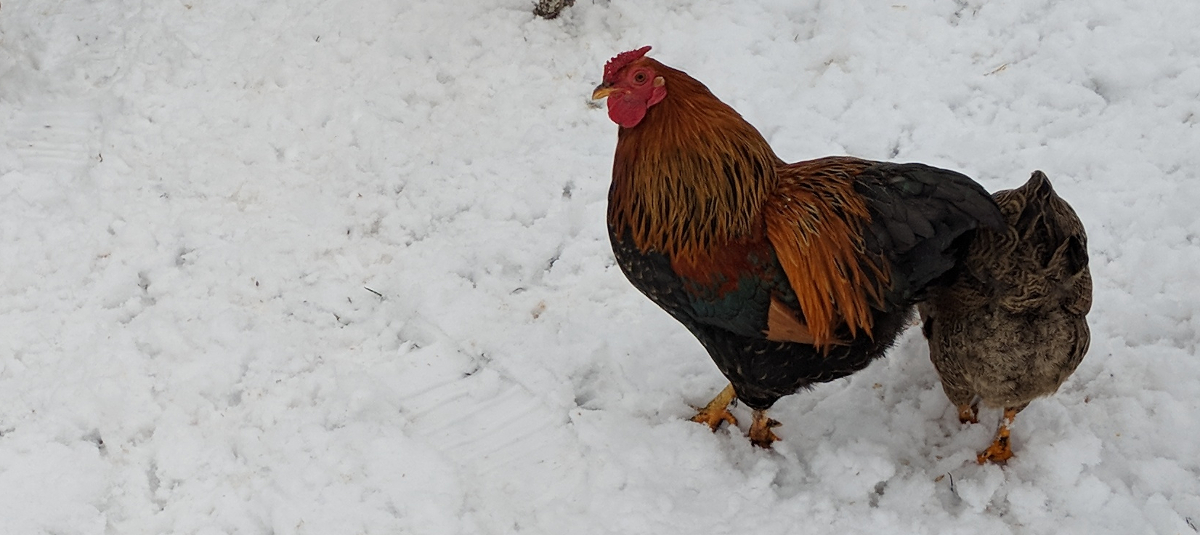
Despite evolving in warmer area’s of the planet chickens are well adapted to the deal with the cold and struggle more with excesses of heat . Feathers trap warm air effectively and they have a special system of blood vessels in their feet. This allows them to exchange the heat in their legs and prevents heat loss from the feet.
I have kept chickens free range in the Yorkshire Dales for more than 20 years and have never had any problems just keeping my birds in a wooden shed. I do use sturdy tarpaulins to break the wind and provide shelter.
Below: This is some of my hens wandering in the snow.
Chickens do not mind the cold, especially after they have had a few days to get used to it, but will struggle to forage for greens in the snow.
I have many more problems with water sources freezing solid but as I get my hens up first thing in the mornings I give them fresh.
In 2009 and 2010 we had some serious winters with long cold spells and temperatures as low as -20 C. The only 2 things I did was open my poly-tunnel for the hens during the day and feed them hot boiled wheat first thing in the morning.
In short do not bother spending time and money insulating the average backyard coop in the UK. It is unlikely that the average chicken coop in the UK will need insulation except for a few situations.
- Those located in windy sites.
- Coops not constructed from wood.
- Those in high or more northern area’s.
- You keep small bantams or frizzles that will feel the cold more.
- Newly freed ex battery hens.
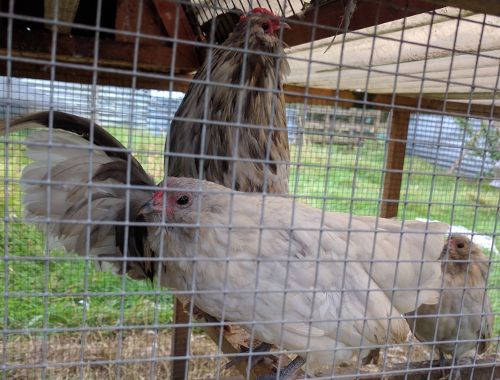
Above: Small birds like these splash Barbu d'Anvers may need a little more care in winter. Frizzles are particularly vulnerable.
Insulation is likely to be expensive and time consuming and will give a home to trillions of mites in the summer. It requires construction of internal walls over the walls and roof.
Insulating a coop can be counterproductive as it will interfere with ventilation which is important.
You can and should grease up you birds combs with Vaseline or goose fat (oh, the irony of that) to prevent frostbite if the temperature outside is below -10C.
Don’t hang heaters or lights in the coop, fires are too common and lighting will mess with their sleep patterns just as it would do with yours.
Do not block up the coop’s air vents during the winter to make it warmer. An essential element of poultry care is that fresh air circulates through the hen house to prevent the build up of water vapour, ammonia and other gases in the living space. It will also reduce the chance of your chickens getting respiratory or other airborne infections.
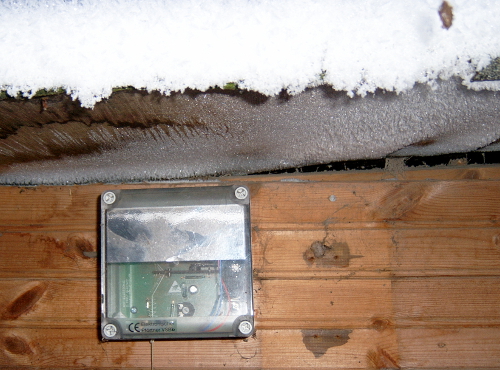
Above: You can see the ice crystals that have formed as moisture has left the coop through the air vents. This is why ventilation is so important even in the depths of winter. It would otherwise be condensing inside the coop and making everything damp.
If you coop is mobile then just move it somewhere warmer or more sheltered.
As the United Kingdom is in the temperate zone it benefits from milder weather and tends to be shielded from extremes by the sea surrounding us.
Your birds will still want to go outside in the snow and you should let them. Chickens are not hugely amused by snow and seem to dislike it most when it will not support their weight but keeping them in for long periods is not advisable.
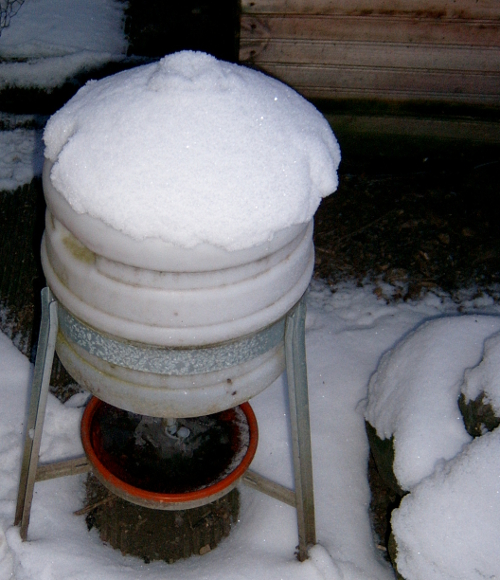
Above: A frozen water supply is much more of a problem in winter.
To sum up :
- You will likely have more problems with an insulated coop than without.
- Shelter from wet and draughts is many more times important. Chickens require a draught free perch on which to roost. They will fluff up their feathers and settle down next to each other.
- A few sunflower seeds or a couple of suet pellets to boost the calories in the diet will be more effective.
- Plenty of clean dry bedding and an indoor dust bath.
- Try and add some greenery to their diet as they won’t forage in the snow.

